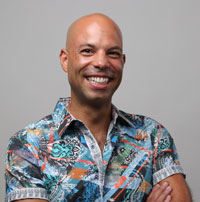
IBES Room 130, 85 Waterman Street, Providence RI 02912
This paper engages with the Syrian refugee crisis in Lebanon and, specifically, considers how queer-identified Syrians navigate an often-hostile environment in and around the Lebanese capital Beirut. Drawing on hospitality as a philosophical concept and on the sociological notion of the stranger, this paper focuses on discourses and aspirations these refugees express, in terms of language and bodily practices, in the face of what many experience as “hardened borders” within the social fabric of the host country. These discourses and aspirations frequently amount to practices that engender new forms of (im)mobility that, in turn, create zones of encounter for individuals with varying class, sectarian, and gender backgrounds. In addressing these emerging zones of encounter, the paper looks at what I would like to call the “aborted pluralism” for many gay Syrian refugees in Beirut and, therefore, what it actually means to be a gay Syrian refugee in Lebanon today. In so doing, it zooms in ethnographically on the eastern Beiruti suburbs of Borj Hammoud and Sadd al-Baouchrieh and reflects on their transformations over the past century, from an early settlement for survivors of the Armenian genocide, mostly in the case of the former, to a place of residence for many domestic workers hailing from South(east) Asia and Eastern Africa. Today, both of these urban districts are two of the principal settings in Lebanon where the complicated politics of what I call “strange hospitality" can best be assessed.
Speaker
Sofian Merabet is an Associate Professor in the Department of Anthropology at The University of Texas at Austin. He is a socio-cultural anthropologist with an expertise in the modern Middle East (with a focus on Lebanon and Syria) and the wider Muslim world, including Muslim immigrant communities in Europe and the Arab Diaspora in South America (especially Argentina). His interdisciplinary research analyzes the human geography of queer identity formations and the social production of queer space as constitutive features of wider class, religious, and gender relations. His professional interests draw on comparative methodologies and approaches ranging from religious and cultural history to the politics of sexuality.
Series Information
The Critical Migration and Refugee Studies Series dynamically considers the crucial issues of racial, ethnicity and migration in the contexts of displacement. A CSREA Faculty Grant Event organized by Kevin Escudero, Assistant Professor of American Studies. This series is supported by the Middle East Studies Program, the U.S. Latino Studies Fund, the Center for Latin American and Caribbean Studies, the Department of Sociology, and the Department of Africana Studies.
